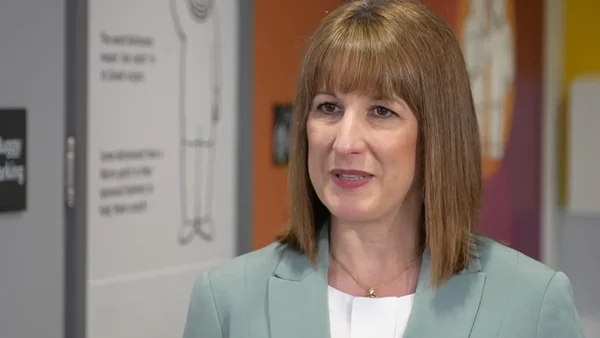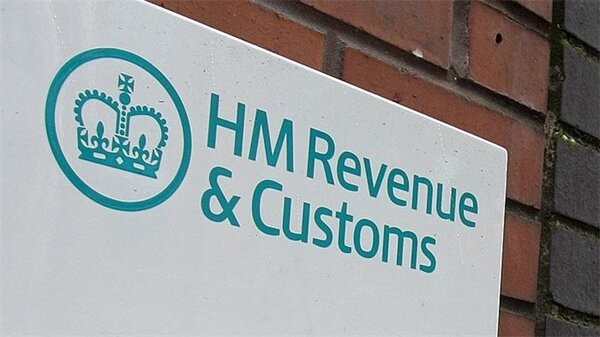What You Need to Know
When you see National Insurance coming out of your pay, it’s not just another tax - it’s actually building your future pension. Each year you contribute helps secure your retirement income through the State Pension.
Those who paid national insurance contributions at a lower rate, such as public sector employees who were 'contracted-out' of the additional state pension, might see an impact on their future state pension benefits.
Missing years could mean less money when you retire, which is why understanding this connection matters so much. Think of National Insurance as your pension savings account with the government - what you put in now determines what you’ll get later.
What exactly are National Insurance and the State Pension?
National Insurance is a payment that most workers in the UK make. If you’re employed, it comes straight out of your wages before you get paid. The money helps fund various benefits, but its main job is supporting the State Pension system.
The State Pension is a regular payment from the government when you reach pension age. It’s meant to provide a basic income for your retirement years. How much State Pension you get depends directly on your National Insurance record.
The basic State Pension is available to those born before 6 April 1951 (for men) or 6 April 1953 (for women), and the amount you receive depends on your National Insurance contributions.
You need 35 qualifying years to get the full State Pension.
Each qualifying year you build up is worth about £280 annually in your eventual pension. Changes introduced in April 2016 mean that National Insurance records created after this date require 35 qualifying years for the full pension, and these changes also affect individuals' entitlement to the new State Pension.

How many years of contributions do I need?
You need 35 qualifying years of National Insurance contributions to get the full new State Pension. Don’t panic though - a qualifying year doesn’t mean working full-time for 12 months. You just need to earn above a certain amount (currently £6,240) in a tax year.
The new State Pension system was introduced on 6 April 2016, marking the end of old contracting-out rules and affecting pension entitlements for individuals born after that date.
If you’ve got less than 35 years but more than 10 years of contributions, you’ll get a portion of the State Pension. With less than 10 qualifying years, you won’t get any State Pension at all - which is why checking your record is so important.
How do I check my National Insurance record?
Checking your National Insurance record is easy and free. You can do it online through the government website using your personal tax account. You’ll need your National Insurance number, which you can find on your payslip or tax documents.
A state pension statement provides an estimate of how much State Pension you could receive based on your National Insurance contributions. It helps individuals understand their potential pension benefits and plan for retirement based on their qualifying years.
The online service shows which tax years count as qualifying years and highlights any gaps in your record. It’s worth checking your record every few years, especially as you get closer to retirement age.

What if I have gaps in my National Insurance record?
Gaps happen for all sorts of reasons - perhaps you were unemployed, earning below the threshold, or living abroad. The good news is you can often fill these gaps by making voluntary National Insurance contributions, currently around £15.85 per week. Voluntary National Insurance contributions can help you achieve a full State Pension by filling gaps in your National Insurance record. It's important to understand the associated time limits and complexities before proceeding with additional payments.
Before paying anything, check if it’s worth it. If you’re likely to build up 35 years anyway through future work, it might not be necessary. Some gaps might already be covered by National Insurance credits if you were claiming certain benefits or caring for someone.
What are National Insurance credits?
National Insurance credits are like freebies from the government that help protect your State Pension when you can't work. You might get them automatically if you claim benefits like Jobseeker's Allowance or Universal Credit.
Parents registered for Child Benefit for kids under 12 get credits without having to do anything extra. Carers looking after someone for at least 20 hours weekly can apply for Carer's Credit to keep their record intact.
These credits count just like paid contributions toward your State Pension qualification. When I took a year off to care for my elderly father, these credits ensured my pension wasn't affected.

Will working part-time affect my State Pension?
Working part-time can affect your State Pension if you earn below the Lower Earnings Limit (currently £6,240 per year). If you earn less than this, you won't pay National Insurance - which means that year won't count as a qualifying year.
However, you might still get National Insurance credits if you're claiming certain benefits alongside your part-time work. If you have multiple part-time jobs, unfortunately the earnings aren't combined when working out if you've reached the threshold.
How is the State Pension age changing?
The State Pension age is gradually increasing. It's currently 66 for both men and women, but it's set to rise to 67 between 2026 and 2028, and then to 68 in later years.
These changes mean many of us will be working longer before we can claim our State Pension. You can check your personal State Pension age on the government website by entering your date of birth.
Can I increase my State Pension?
Yes! If you’ve reached State Pension age but don’t need the money yet, you can delay claiming it. For every 9 weeks you defer, your State Pension increases by 1%. This works out at just under 5.8% for each full year.
Additionally, a civil partner's pension can influence your State Pension. If your spouse or civil partner has pension rights, you may be able to inherit or claim part of their pension, potentially increasing your own State Pension.

Your Spouse or Civil Partner’s Pension
Your new State Pension is typically based on your own National Insurance record. However, in some cases, you may be eligible to inherit or increase your State Pension through a spouse or civil partner. The rules for this are complex and depend on individual circumstances.
If you’re married or in a civil partnership, you might be able to claim a higher State Pension based on your spouse or civil partner’s National Insurance record. This can be particularly beneficial if your own National Insurance record has gaps. For more detailed information on claiming or inheriting a deferred State Pension, you can consult the relevant resources provided by the Pension Service.
By understanding these aspects of the State Pension system, you can better plan for your retirement and ensure you receive the maximum benefits you’re entitled to.
How do self-employed people build up State Pension?
Self-employed people pay National Insurance differently, through Classes 2 and 4 contributions via Self Assessment. You'll need to earn at least £6,725 (2023/24 tax year) to pay Class 2 contributions, which count toward your State Pension.
If you earn less, you can still make voluntary contributions to protect your State Pension rights. Keeping on top of your tax affairs is crucial when you're self-employed. Pie is the UK's first personal tax app designed to help working individuals manage their tax burdens easily.

What happens to my National Insurance if I move abroad?
Moving abroad doesn't automatically stop your National Insurance record, but it does pause it unless you take action. You might be able to pay voluntary contributions from overseas to keep building up your UK State Pension.
If you move to a country with a social security agreement with the UK, you might be able to count your time working there toward your UK State Pension. It's worth getting advice about your specific situation before you move.
How do recent tax changes affect my National Insurance and pension?
National Insurance rates and thresholds change almost every year, affecting how much you pay. The government's "triple lock" promise means the State Pension usually increases each April by whichever is highest: inflation, average wage growth, or 2.5%.
Recent budgets have also changed how much you need to earn before paying National Insurance. With all these changes, staying informed is essential for planning your future finances.

Final Words
Start by checking your National Insurance record online to see where you stand. If you find gaps, work out whether it’s worth paying to fill them based on how many qualifying years you’re likely to build up.
Eligibility for the new State Pension depends on your birthdate. For example, a woman born on or after 6 April 1953 will have different qualifying criteria compared to those born earlier.
Consider getting a State Pension forecast to see how much you might receive when you retire. For personalised help with tax matters including National Insurance, try Pie - the UK’s first personal tax app that offers real-time tax figures and expert advice.
Remember, a little planning today could mean a much more comfortable retirement tomorrow!











